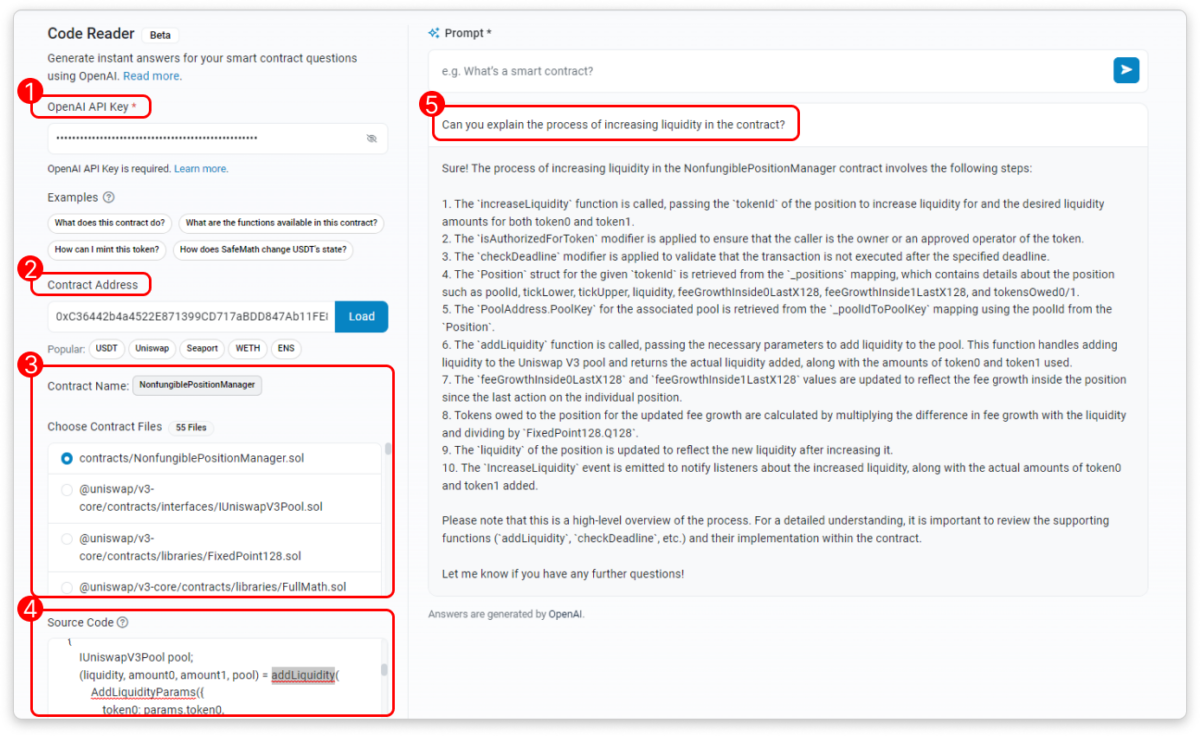Companies in the Web3 space are increasingly looking to incorporate artificial intelligence with blockchain-related technologies. On June 19, Etherscan, the popular Ethereum block explorer, took a significant step in that direction when it announced the integration of OpenAI’s ChatGPT into its suite of tools. The move is aimed at enhancing the understanding and interpretation of Ethereum source code, something seen by many as a crucial step in the democratization of blockchain technology.
Etherscan’s new tool, which is currently in beta, is called Code Reader and is designed to leverage the capabilities of AI to help users retrieve and interpret the source code of specific contract addresses. Etherscan’s integration of ChatGPT into its platform could potentially have a significant impact on the way users interact with the Ethereum blockchain, allowing the non-coding savvy to interpret information about a contract with speed and ease.
Accessing blockchain contract information
Blockchain explorers, known as “block explorers,” are essentially data platform search engines geared specifically at blockchain networks. They allow users to view information about transactions and other information on a particular chain. While Etherscan deals with the Ethereum network, other chains’ block explorers include Blockstream for Bitcoin and Solscan for the Solana network.

“The Code Reader is a tool that leverages the power of AI to provide users with the ability to retrieve and interpret the source code of a specific contract address,” the Etherscan team wrote while announcing the tool on its Twitter handle.
Etherscan warns of ChatGPT flaws
The integration is not without its challenges. Etherscan’s Code Reader operates on its own platform and requires a separate OpenAI API key, which comes at an additional cost beyond a ChatGPT Plus subscription.
More importantly, Etherscan has issued a disclaimer cautioning users not to take the information provided by ChatGPT at face value. This stems from a broader issue prevalent in the AI industry, known as “hallucinations,” which is when an AI system convincingly generates false or misleading information.
🆕 Code Reader (Beta)
Leverage the power of AI to seamlessly learn about any smart contract source code! ✨ pic.twitter.com/GTbULisudk
— Etherscan (@etherscan) June 19, 2023
OpenAI has acknowledged the issue regarding hallucinations and is reportedly working on new training models to mitigate them. For the time being, the problem persists, and users are advised to always verify the responses generated by AI systems.
Etherscan’s ChatGPT integration is far closer to the rule than the exception in the Web3 landscape; other blockchain platform developers, like Alchemy and Solana Labs, have also launched their own ChatGPT-based tools in recent months. These developments highlight the growing intersection of AI and blockchain technology, a convergence that promises to unlock new possibilities but also poses significant challenges.



